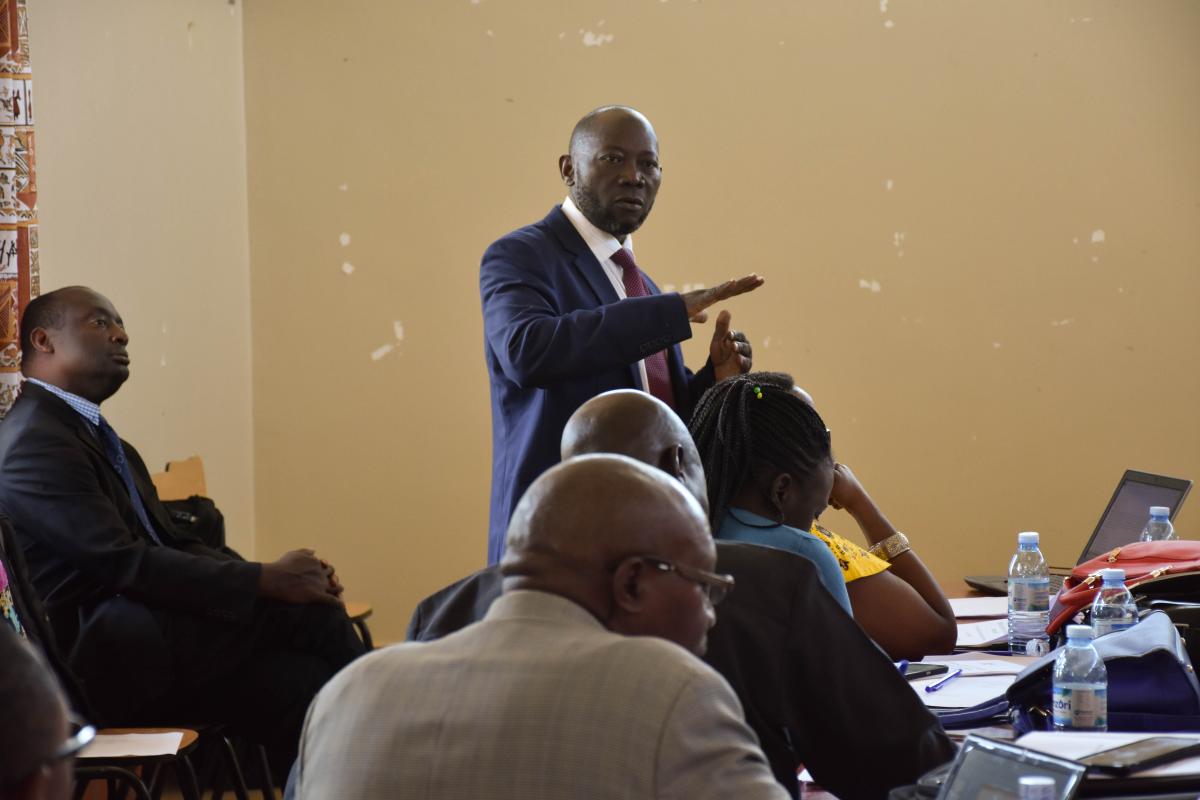Improving the Performance of National Teachers' Colleges
National
Teachers’ Colleges (NTCs) in Uganda work with one common goal; to train and
produce the best teachers in Uganda. Positioned across the country in Muni, Unyama,
Kaliro, Mubende and Kabale; these colleges attract a large number of students
hoping to join the teaching profession and become competent teachers within
country.
With the
support from TIET department of the Ministry of Education and Sports and the Teacher
Training Education (TTE) project by Enabel, the NTCs have been able to
actualize a number of goals and make tremendous achievements towards their
improving their own systems and capabilities. This has mainly been realised
through the quarterly performance review meetings.
The 4th Quarterly
Review Meeting
After each
quarter of implementation, a national monitoring meeting is held on a
rotational basis at one of the NTCs and this meeting hosts a vast number of
stakeholders ranging from TIET education Commissioner, Education officers, NTC
Principals, governing council members, guild student representatives,
representatives from Kyambogo University Teacher Training department and Enabel
staff.
It is
through the quarterly review meetings that all stakeholders that support the
NTCs review the colleges performance in relation to the access to teacher
training services for students across the country, the institution’s management
capacities and ensure the best quality teacher training.
This July,
the NTCs held their 4th quarterly review meeting at NTC Kaliro and the
assesment was done based on 3 major areas. Access; which is aimed at increasing
access to teacher training, management; which enhances the NTC’s management
capacities and finally quality; which enhances the quality of teacher training
within the NTCs.
The following
were the achievements and recommendations realised during the meeting.
·
Generally,
all colleges realised an increase in number of students enrolling and this was
due to the different forms of advertising campaigns and communication done
·
The was an
overall improvement in asset maintenance, this included the infrastructure
maintenance, availability of electricity and water and implementation of
behavioural change workshops on topics such as energy saving, waste management,
gender based violence, safe learning environment issues, sexual reproductive
health, legal policy frameworks among others.
·
In the area
of management, the workshop identified the need to harmonize work-plans and
budgets across colleges but also highlighted improvements in ICT, financial,
human resource and academic management within the colleges.
·
In the area
of quality, there were improvements and assessments in the use of Active
Teaching and Learning (ATL) in pedagogical preparations, Support Supervision
and Continuous School Practice.
Laatste nieuws van dit project
Geen nieuws

